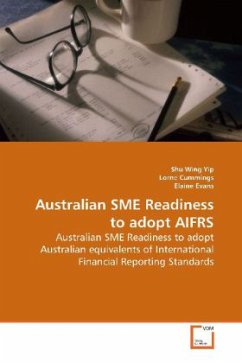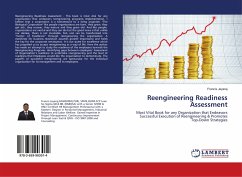In July 2002, the Financial Reporting Council (FRC)
announced that the Australian Accounting Standards
Board (AASB) would fully adopt Australian
equivalents to International Financial Reporting
Standards (AIFRS) from 1 January 2005. This would
affect all reporting entities, including listed and
unlisted entities, both private and public. This
research investigates the impact of AIFRS on SMEs in
2005/06, specifically the factors affecting their
readiness to adopt AIFRS, including: (1) the
translation plan of and obstacles to adoption, (2)
communication with stakeholders, (3) amount of
resources required, (4) AIFRS information sources,
(5) potential impacts of AIFRS on SMEs, (6) overall
readiness, and (7) the advantages and disadvantages
of AIFRS to SMEs. Furthermore perspectives were
provided by two professional accounting bodies.
Results through a web based survey indicate that
several SMEs were not ready to adopt AIFRS due to an
underestimation of their complexity, lack of
perceived benefits and the time and resource
constraints involved. The study concludes that
regulators are justified in re-considering the
requirements of AIFRS in relation to SME''s.
announced that the Australian Accounting Standards
Board (AASB) would fully adopt Australian
equivalents to International Financial Reporting
Standards (AIFRS) from 1 January 2005. This would
affect all reporting entities, including listed and
unlisted entities, both private and public. This
research investigates the impact of AIFRS on SMEs in
2005/06, specifically the factors affecting their
readiness to adopt AIFRS, including: (1) the
translation plan of and obstacles to adoption, (2)
communication with stakeholders, (3) amount of
resources required, (4) AIFRS information sources,
(5) potential impacts of AIFRS on SMEs, (6) overall
readiness, and (7) the advantages and disadvantages
of AIFRS to SMEs. Furthermore perspectives were
provided by two professional accounting bodies.
Results through a web based survey indicate that
several SMEs were not ready to adopt AIFRS due to an
underestimation of their complexity, lack of
perceived benefits and the time and resource
constraints involved. The study concludes that
regulators are justified in re-considering the
requirements of AIFRS in relation to SME''s.








